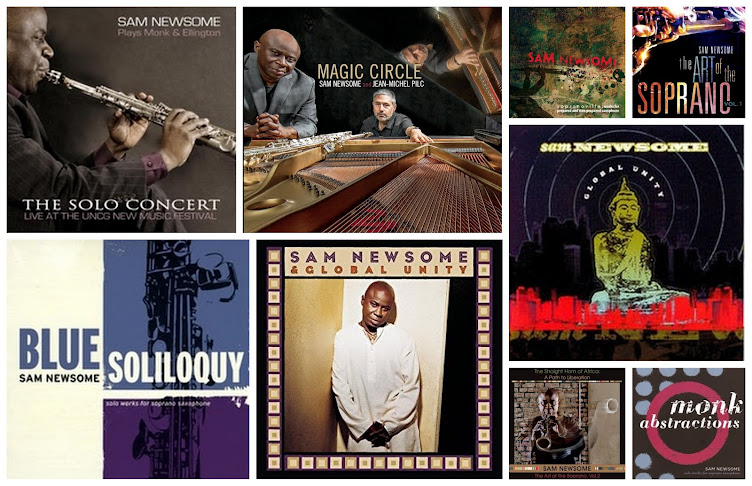Knowing this is important because it lets us
know the level of urgency with which we need to improve our weaknesses and to
take our playing to the next level of musicianship. As I said earlier, the
older we are, the more harshly we are judged.
Throughout this piece we will examine ones development over the four years it
takes to get a bachelor's degree. The different levels of criticism will be labeled as categories 1 - 4.
To begin, let's say that someone hears you play as a freshman. And we will assume that you're 18 years old, straight out of high school--or as we used to say on the Eastern shore of Maryland, "straight off the cucumber truck." An average player at this age usually has a certain amount of things together--or else they probably wouldn't have been accepted into the music program. They typically now a few tunes, they have basic working knowledge of scales and chords, and they typically have adequate technical facility, enabling them to modestly get around their instrument.
Now that we have a starting point, a tangible point of reference, I will now discuss the four categories of judgment an average student might be subjected to during the four years it might take them to get an undergraduate music degree.
To begin, let's say that someone hears you play as a freshman. And we will assume that you're 18 years old, straight out of high school--or as we used to say on the Eastern shore of Maryland, "straight off the cucumber truck." An average player at this age usually has a certain amount of things together--or else they probably wouldn't have been accepted into the music program. They typically now a few tunes, they have basic working knowledge of scales and chords, and they typically have adequate technical facility, enabling them to modestly get around their instrument.
Now that we have a starting point, a tangible point of reference, I will now discuss the four categories of judgment an average student might be subjected to during the four years it might take them to get an undergraduate music degree.
Category 1: Most people when hearing you at this stage
will be somewhat forgiving of most, if not all of your shortcomings. Mainly
because they're projecting that most of your weaknesses will be corrected in the upcoming years. So the evaluation they're most likely to
give you is "You've Got Potential" or "You're Going to be
Alright."
Category 2: Now's let's look at the following year and
you're still grappling with the same issues you were struggling with as a
freshman, they're going to judge you at level 2, which is "You Need to
Work Harder." So as you can see , this level of judgment is slightly
harsher than category 1.
Category 3: Let's say that they hear your in year three
and you've made a few improvements, but not enough to leave the impression that
you've been working really hard. Now you havte moved to category three:
"You Really Need to get Your Sh#t Together!" This is a dangerous
category because now they're starting to lose confidence in you and question
whether you have the drive and maybe even the talent to get i together
musically. And this is a dangerous place to be in, because teachers will be
less inclined to make that extra effort for you: recommending you for gigs,
turning you on to recordings, sharing special anecdotes with you. You'll be
reduced to the category of "Just Another Student."
Category 4: Now here's the fourth and most dangerous
category. This is when you've made very little effort and consequently, little
improvement from day 1. You're skating on the changes, or as we used to say,
pulling a Tonya Harding; you sound more like an OK freshman than a
soon-to-be newcomer to the coveted jazz scene. You have now entered that danger
zone known as the "He (or She) Ain't Serious" zone. This is when you
have gone from a potnetial asset to the music department to being a potential burden
to it. Every time someone mentions your name, all that your professors can do
is roll their eyes or shake their heads.
I've seen many with potential wind up in this category, with me being the one rolling my eyes and shaking my head. It's disappointing to see it happen, but it does happen. If you don't want to end up here, the antidote is simple: practice, work hard and work long hours. Keep in mind that to get to the level where you sounded like a college freshman with potential took close to 8 years. However, to play at the level where you sound like a young professional with potential, you have to work twice as hard. To borrow from Martin Luther King, everything you do as a college student needs to be dealt with the "fierce urgency of now'."
I've seen many with potential wind up in this category, with me being the one rolling my eyes and shaking my head. It's disappointing to see it happen, but it does happen. If you don't want to end up here, the antidote is simple: practice, work hard and work long hours. Keep in mind that to get to the level where you sounded like a college freshman with potential took close to 8 years. However, to play at the level where you sound like a young professional with potential, you have to work twice as hard. To borrow from Martin Luther King, everything you do as a college student needs to be dealt with the "fierce urgency of now'."
To give you an idea of how important this time is, I guess honestly say that fifty
percent of my musical vocabulary was learned in college. Of course, I spent the
next 30 years fine-tuning what I'd learned. But the initial gathering of information stage
happened between the ages of 17 - 22. Sixty percent of the tunes I know were learned during this period and seventy-five percent of my practice regimen was
established during this time. Not only did I learn what and how to practice,
this where I put in the time. I'm not saying that during this period I put in
my 10,000 hours, but certainly over 5,000 of them.
Now, I could go on and on citing examples of the amount of
things I accomplished during this period, bdut the fact of the matter is this:
Time passes by very quickly. Before you know it, you're wearing your cap and
gown, marching to the beat of "Pomp and Circumstance," being handed a
rolled up fancy piece of paper, which, if you can't play, won't guarantee you
anything but a huge loan to pay back over the next 20 years.
So my advice is to stop poking your chest out and spouting that you're only 18 years old, as though that's an accomplishment. When you get to be 100 years old, then you can pop open that bottle of Champaign. Otherwise, the only thing you should be popping open is the door to the practice room. Time is ticking. Tick, tock, tick, tock...









